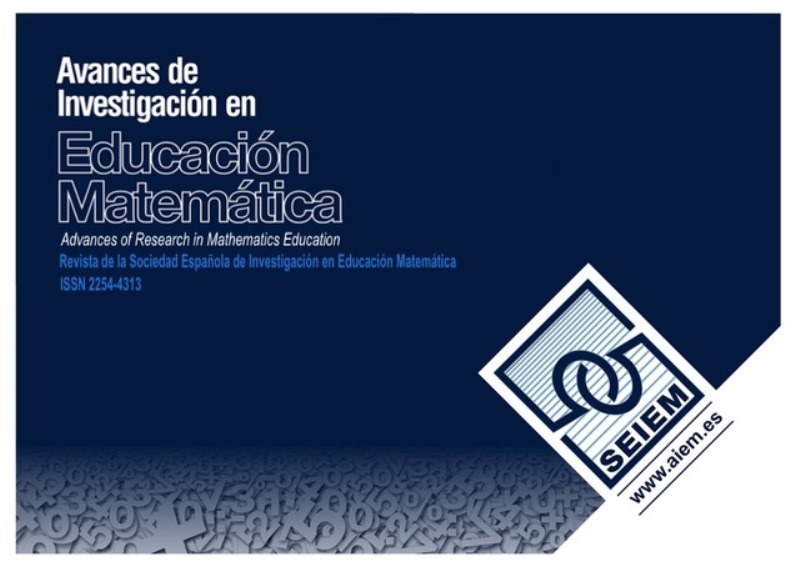Desarrollo del domino afectivo matemático en la formación inicial de maestros de primaria
DOI:
https://doi.org/10.35763/aiem.v0i18.286Resumen
Un elemento clave para mejorar cualquier sistema educativo es la formación inicial de maestros, donde en particular se construye el perfil docente bajo la influencia de factores afectivo-emocionales matemáticos. El objetivo de este trabajo es determinar si la formación universitaria produce cambios en el dominio afectivo matemático de los futuros maestros. Mediante un diseño longitudinal aplicado a 414 estudiantes del Grado en Educación Primaria y Modelos Lineales Generales de Medidas Repetidas, comparamos aspectos afectivo-emocionales al comienzo y al final de la formación. Los resultados indican la disminución de actitudes y emociones matemáticas positivas. Concluimos sobre la necesidad de 1) fijar mayor atención al dominio afectivo matemático en los programas de formación inicial de maestros y 2) desarrollar programas de intervención sobre este dominio en esta etapa formativa.
Descargas
Descargas
Publicado
Cómo citar
Número
Sección
Licencia
Los trabajos se publican bajo una licencia de Creative Commons: Reconocimiento 4.0 España a partir del número 21 (2022).
Los autores que publican en esta revista están de acuerdo con los siguientes términos:
- Los autores conservan los derechos de autor y el reconocimiento de la autoría.
- Los textos publicados en esta revista están sujetos –si no se indica lo contrario– a una licencia de Reconocimiento 4.0 Internacional de Creative Commons. Puede copiarlos, distribuirlos, comunicarlos públicamente, hacer obras derivadas y usos comerciales siempre que reconozca los créditos de las obras (autoría, nombre de la revista, institución editora) de la manera especificada por los autores o por la revista. La licencia completa se puede consultar en http://creativecommons.org/licenses/by/4.0.
- Los autores pueden establecer por separado acuerdos adicionales para la distribución no exclusiva de la versión de la obra publicada en la revista (por ejemplo, situarlo en un repositorio institucional o publicarlo en un libro), con un reconocimiento de su publicación inicial en esta revista.
- Se permite y se anima a los autores a difundir sus trabajos electrónicamente (por ejemplo, en repositorios institucionales o en su propio sitio web) antes y durante el proceso de envío, ya que puede dar lugar a intercambios productivos, así como a una citación más temprana y mayor de los trabajos publicados (Véase The Effect of Open Access) (en inglés).









